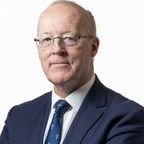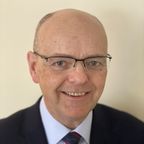Session Title: Preventing Harm and Transforming Lives NJR Session and launch of 22nd Annual Report
Chair & Co-Chairs: Tim Wilton & Andrew Porteous
Session Agenda:
Session first section
08:30 - 08:35: Welcome delegates and launch of AR22 report
Andrew Porteous, Chair, NJR Editorial Committee
08:35 - 08:45: Where to go for your information vs. what you get from other registries
Tim Wilton, Medical Director, NJR
08:45 - 08:55: Developments in what we measure and how we measure it
Professor Michael Whitehouse, University of Bristol
08:55 - 09:05: Preventing harm: what we can learn from implants no longer in use or withdrawn
Derek Pegg, Member of NJR Executive Committee
09:05 - 09:15: Delegate Q&A on session presentations
Session second section
09:15: The impact of NJR Supported Research – a selection of papers
Introduction
Mark Wilkinson, Chair, NJR Research Committee
Paper 1: Reverse total shoulder replacement versus anatomical total shoulder replacement for osteoarthritis: population-based cohort study using data from the National Joint Registry and Hospital Episode Statistics for England
Markos Valsamis
Paper 2: The association of bearing surface materials with the risk of revision following primary total hip replacement: A cohort analysis of 1,026,481 hip replacements from the National Joint Registry
Erik Lenguerrand, Senior Lecturer in Medical Statistics and Quantitative Epidemiology, University of Bristol
Paper 3: Higher hospital volume was associated to a lower rate of early failure following first revision total knee arthroplasty for infection - An analysis using data from the National Joint Registry, Hospital Episode Statistics and National Patient Reported Outcome Measures Datasets
Alex Matthews, Trauma and Orthopaedic Registrar
Paper 4: Total elbow replacement in England: a protocol for analysis of National Joint Registry and Hospital Episode Statistics data
Zaid Hamoodi, Trauma and Orthopaedics Specialty Registrar (ST8) in the Northwest (Mersey) Deanery
09:43: NJR Supported Research Q+A
09:51: The patient journey - recent joint surgery and use of information on NJR website
Interview with joint replacement patient, Janice
09:57: The NJR, looking ahead
Professor Sir Paul Curran, Chair, NJR
10:00 - Session ends
×
Zaid Hamoodi
Mr Zaid Hamoodi is a Trauma and Orthopaedics Specialty Registrar (ST8) in the Northwest (Mersey) Deanery with a specialist interest in upper limb surgery. He is a former NJR/RCSEng Research Fellow and a PhD candidate at the University of Manchester, where his research explores the predictors of failure in total elbow replacement.
He led the NJR Data Quality Audit (NJRDQA) for elbow arthroplasty alongside Professor Adam C Watts. This was a national collaborative initiative involving the NJR, BOTA, BOA, BESS, and RCSEng. This work improved the completeness and accuracy of elbow data within the registry, and involved engaging with orthopaedic trainees across the UK to drive meaningful improvements in national data quality.
E-mail: Zaid.hamoodi@nhs.net
Twitter: @Zaidahamoodi
×
Tim Wilton
Chair, Medical Director, NJR
Tim Wilton trained at Oxford and at UCH medical school and in Orthopaedics at Nottingham, Harlow Wood, Derby and South Wales with travelling fellowships in N America, Strasbourg, Bern and Ljubljana. He has an entirely elective practice in lower limb arthroplasty and has specialised in knee replacement and knee revision surgery for the last 30 years. He has a lifetime personal experience of over 2500 hip and 3500 knee replacements.
Tim teaches widely on technical aspects of knee replacement and has been invited lecturer throughout the world and at the major European, North American and International Knee Surgery organisations.
Tim has been President of the BOA and of BASK, and Chairman of the Bone and Joint Journal.
He is NJR Medical Director and Vice Chair, NJR Board.
×
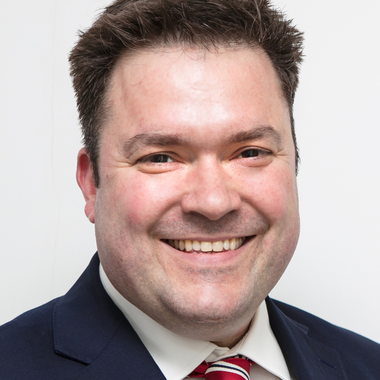
Professor Michael Whitehouse
Professor of Trauma and Orthopaedics, University of Bristol
Mike is a Professor of Trauma and Orthopaedics at the University of Bristol. His research focuses on the treatment of osteoarthritis, outcomes of joint replacement, adverse events such as the treatment of PJI, hip fracture, open fractures and cartilage damage. He employs a wide range of research methodologies including multicentre randomised controlled trials, first-in-human trials, analysis of large routinely collected healthcare datasets, evidence synthesis, qualitative methods and health economics. He leads the NJR lot 2 contract for Statistical Analysis, Support and Associated Services and a range of NIHR funded studies investigating bearings in THR, optimisation for surgery, intra-articular injections, novel devices and treatments for cartilage damage and infection. Mike has published over 250 peer reviewed papers, 9 NJR annual reports, and obtained grant funding of £5.9 million as lead and a further £16.4 million as co-applicant. He sits on the British Orthopaedic Association and British Hip Society research committees.
×
Derek Pegg
Consultant Trauma and Orthopaedic Surgeon, Mid Cheshire Hospitals Foundation Trust, Chair, NJR Data Quality Committee
Derek Pegg is a Consultant Trauma and Orthopaedic Surgeon at Leighton Hospital, Mid Cheshire Hospitals Foundation Trust, Crewe. Appointed in 1996, Derek developed a specialist interest in both hip and knee replacement surgery and (until very recently) their revision. He joined the NJR as a regional clinical coordinator (RCC) for the Northwest in 2012, becoming the deputy chair in 2017 and was appointed Chair of the RCC Committee in January 2021. He is also a member of the NJR Board, Executive Committee and Chair of the NJR Data Quality Committee.
×
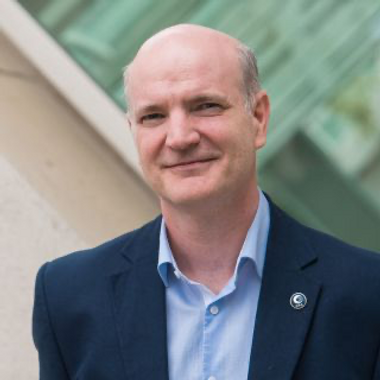
Mark Wilkinson
Professor of Orthopaedics, Sheffield Teaching Hospitals, Chair, NJR Research Committee
Professor Wilkinson's principal research interests are in the genetic and metabolic aspects of joint replacement, osteoarthritis, and other associated diseases. Professor Wilkinson is a key clinical collaborator in the Genetics of Osteoarthritis initiative. He and his collaborators have been instrumental in determining our current understanding of the genetic architecture of osteoarthritis. He conducted the first genome-wide scan into hip dysplasia, and into osteolysis and heterotopic ossification after hip replacement, He published the first study in humans to show that bisphosphonates may suppress bone loss after hip replacement and the first clinical trial to show that the human monoclonal antibody denosumab can inhibit osteolysis lesion activity. Other areas of research include exploration of the molecular mechanisms that underpin osteoarthritis development and identifying potential novel pharmacological strategies for its treatment. He has worked on the genetics of osteoarthritis has uncovered novel gene associations with severity and pattern of hip and knee OA, bone remodelling responses to disease, and hip shape. He also studied the systemic health effects of metal ion exposure after hip resurfacing has demonstrated effects on bone cells, cardiovascular, and other systems.
Professor Wilkinson’s principal funding sources are Versus Arthritis, NIHR, Wellcome, MRC, Royal College of Surgeons of England, Cavendish Foundation, John Charnley Trust and industry.
×
Valsamis Markos
Markos completed his medical studies at the University of Cambridge and entered specialty training in Trauma and Orthopaedics in Oxford. His DPhil at the University of Oxford was titled “Improving outcomes for patients having shoulder replacements: guiding patient selection, evaluating cost-effectiveness and informing NHS provision” and was funded by an NIHR Doctoral Fellowship.
×
Dr Erik Lenguerrand
Senior Lecturer in Medical Statistics and Quantitative Epidemiology, University of Bristol
Erik is a Senior Lecturer in Medical Statistics and Quantitative Epidemiology at the University of Bristol, Translational Health Sciences, Musculoskeletal Research Unit lead by Professor Michael Whitehouse. He joined the University of Bristol in 2012 following medical statistician positions at the Medical Research Council and French Institute of Science and Technology for Transport, Development and Networks.
Erik has a particular interest in orthopaedic research to improve outcomes following joint replacement and is a contributor to the content development of the NJR Annual Report. He has produced over 100 manuscripts aiming to provide robust evidence that should inform best clinical practice https://pubmed.ncbi.nlm.nih.gov
@LenguerrandErik
×
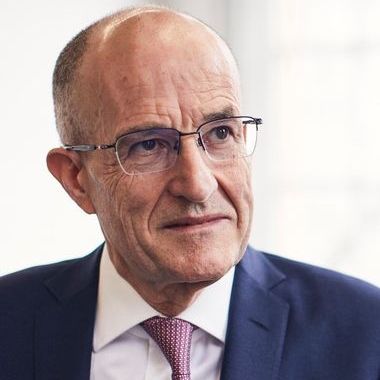
Sir Paul Curran
Chair, National Joint Registry
Professor Sir Paul Curran
Sir Paul was appointed Chair of the National Joint Registry in May 2022. President of City, University of London from 2010 to 2021, he served previously as Vice-Chancellor of Bournemouth University and Deputy Vice-Chancellor of the University of Southampton. A former academic at the Universities of Sheffield, Reading and Swansea, a NASA research scientist at Ames California and advisor to the European Space Agency, his research on environmental Earth observation has focused on climate change.
He is Chair of the Multiple Sclerosis Society, a Director of the Universities Superannuation Scheme and President of the Remote Sensing & Photogrammetry Society. He was Chair of the national Review Body on Doctors’ & Dentists’ Remuneration, Universities & Colleges Employers Association and The Conversation UK and was also a Member of the Natural Environment Research Council, Quality Assurance Agency, London Higher and Universities UK.
Sir Paul holds the degrees of BSc (Sheffield), MBA (Southampton), PhD and DSc (Bristol), Honorary DSc (Grand École ESCP, Paris & Peter the Great University, St Petersburg) and was Knighted in the 2016 New Year Honours for ‘services to higher education’.
×
Alex Matthews
Registrar
Alex is a ST6 Trauma and Orthopaedic Registrar on the Health Education Southwest Training Programme. He recently completed a Doctorate in Medicine (MD) under the supervision of Professor Andrew Toms, Mr Jonathan P. Evans, Professor Sallie Lamb (all Exeter), William Gray (NHS England) and Professor Andrew Price (Oxford).
Alex’s doctoral research was supported by the British Association for Surgery of the Knee (BASK) Revision Knee Working Group and focused on outcomes following revision knee replacement. His work has contributed to the evaluation and development of revision knee networks across England.
×
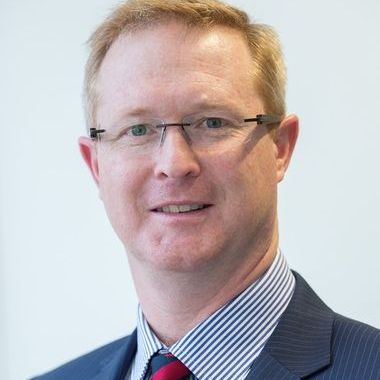
Andrew Porteous
Consultant Specialist Knee Surgeon
Andrew has been a Consultant Specialist Knee Surgeon at the Avon Orthopaedic Centre(AOC) in Bristol, UK for over 23 years. He holds a number of roles within the National Joint Registry including: Chair of the Editorial Committee, Vice-chair of the Surgical Performance Committee, Member of the NJR Board and the Executive Committee.
Andrew is a Past President of the British Assoc for Surgery of the Knee (BASK) and served on the BASK Executive Committee for 12 years. He has previously been the Clinical Lead for Knee Surgery at the AOC for over 15 years, and the Lead for Elective Orthopaedics for five years. He is on the steering committee for the NHSE/GIRFT Revision Knee Network project and is a co-author of National Guidelines for treatment of ACL injuries and Revision knee replacement.
Andrew’s research interests include: Partial, total & revision knee arthroplasty, implant retrieval analysis, infection & knee injury. He has been involved in the development and ongoing work of ODEP and Beyond Compliance for Knees. He is a Member of the BASK, BOA, EKS, ESSKA, EKA and ISAKOS; he holds a Master’s Degree in Orthopaedic Engineering.

